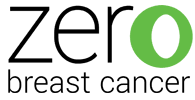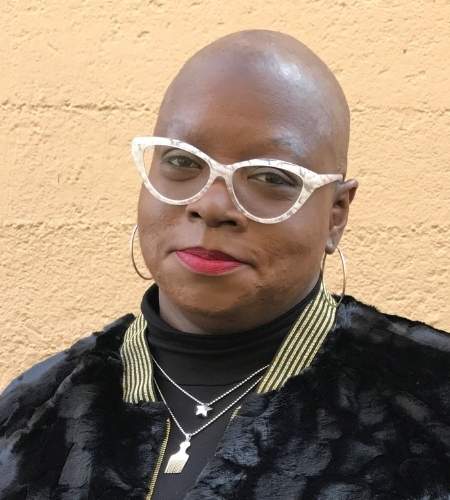Get to Know ZBC Community Partners: Cassandra Falby, Women’s Cancer Resource Center
ZBC Program Director Catherine Thomsen has had the privilege of working with Cassandra Falby, LMFT, on identifying and addressing issues that people who have been diagnosed with cancer face. As a psychotherapist working with women through the cancer journey, she has shared her insights and expertise with ZBC. A few months ago, Catherine spoke with Cassandra about her life and her work.
Q: Tell me about your work with Women’s Cancer Resource Center (WCRC).
A: I’m the program director at the WCRC and I’ve been there for almost six years. We have a variety of programs and services that we offer to the members of our community who are living with a cancer diagnosis. I provide guidance and clinically-oriented consultation to the program managers as well manage one of the programs myself, our Support Group Program. I’m also heavily involved with data collection and data management to make sure what we do is in alignment with our goals and in support of our mission.
Q: Why did you go into a career in psychotherapy and cancer disabilities?
A: Disability has been part of my life from birth, in that I have two older siblings who live with disabilities, so I’ve always seen life through that lens of trying to do the best things I can to support how people need and want to be in the world. And psychotherapy is one of the ways I can help facilitate that self-discovery and healing. I want to support people living to their best of their abilities and living with a sense of ease. In some ways, I’ve always been the kind of person who helps others. It’s just in my bones.
Q: How do you support people?
A: One of the ways is that I really try to listen to what people so they feel heard. I try to pay attention to people’s stories and their experiences, where they want to go in life, and who they want to be.
When I sit down to speak with the client about what’s going on, I really try to hear them out fully. And if they are requesting support, I help them clarify their goals, perhaps the three things that are most important to them. That way we can put together an approach and strategize.
Q: What is your relationship with ZBC?
A: Over these years, I feel like my relationship with ZBC has been present almost the entire time that I’ve been at WCRC. I was involved in a project that involved a variety of team members from different organizations around the Bay, looking at how to really amplify the voices of women in cancer survivorship, having these conversations about, ‘how do we make sure that research and assessment and just the way that we gather information is as inclusive as possible?’
In addition, I’m involved with Pathways (Breast Cancer Survivorship Study). I’m on the advisory board. It’s very much an alignment with the work I’m doing at WCRC and also just trying to support people. What does it mean to no longer be in treatment but to have certain health concerns and to be experiencing life differently than people who’ve never been diagnosed with cancer? It’s been great to partner with ZBC around what does survivorship look like and how do we support women who are post treatment as they’re trying to figure out how to navigate that path.
Q: How does WCRC ensure that you meet the needs of under-served populations?
A: One of the ways is all of our services are free. Cost can be a barrier for some folks, right? But when things are free, anyone can access whatever they need to feel supported and to receive care. So, rather than the limiting factor being money, in this case, the limit is what the client chooses. The client gets to decide what services they want.
We have services that are culturally relevant, so we have services that are for women of African descent, our Sister to Sister program. We have a program for Spanish speaking clients as well as a support group, and patient navigation services that are provided in Spanish. While our organization, is open to anyone, we do have these culturally-specific groups. Before the COVID-19 pandemic, we hosted an annual Open House for members of the LGBTQ community. We do hope to resume this tradition in the future. All in all, WCRC welcomes all stripes and types of people.
Q: With the COVID pandemic, what challenges are you facing meeting the needs of your clients?
A: One of the things that we had to do very quickly was migrate all of our programs to an online format. All of our support groups are now available online. One thing that has been wonderful is we’ve seen an increase in the number of people who’ve been able to participate in our support groups.
We now have a different collection of wellness workshops. We are still offering some of our core workshops, but shaping them to be online. It’s more challenging for some workshop structures. We had clients that would come to the center and we provide all the materials, so all they had to do was just show up. That’s more difficult when things are remote. But even our wellness workshops are more accessible for folks who maybe have issues related to transportation or fatigue. There are many steps to get from your home to actually being at the center for a workshop. It removes those steps to make things a little easier.
It’s been great to see how many of our clients have been able to make this migration into this space because WCRC provides resources and support, but we are also a community. I think we’ve done a really good job continuing to facilitate and support community, so our clients don’t feel so isolated during a time when we are supposed to be isolating ourselves.
In terms of challenges, many but not all of our clients have access to the technology to be able to engage in a program via video. Having a smartphone allows them to participate in the support groups or even some of the wellness workshops. But not all clients have a smartphone. Or Internet access. everyone is comfortable with technology. We’re trying to do our best to support our clients who are willing to take this chance, to support them to engage with our programs that are virtual. For our clients that only have the phone and no video access, we’re trying our best to engage them, because we don’t want those people to feel isolated. We know there is more work to do.
Q: Has the recent focus on Black Lives Matter and systemic racism changed how you or WCRC is approaching work?
A: WCRC has always been connected to what it means to be a social justice organization. We are having deeper internal conversations among the staff, of course. Our staff is a mix of cultures and races so that’s definitely something we know is important to talk about. We are trying to have deeper conversations about how, in the domain of cancer care, do we show up to really make sure that we are functioning as an anti-racist organization, as a social justice organization, that works against anti-blackness and so forth.
Q: Can you tell us about your filmmaking & performance art?
A: Many years ago, I made a film called “The Texture of Honesty” and it was actually a film about my hair. For me, the film was kind of my love letter to my body, and really talking about these things in terms of a person who is of African descent, a Black person. This year I joined the board of the Queer Women of Color Media Arts Project, based in San Francisco. I’ve been a supporter for a long time. The film that I made was actually part of that training program, gosh, almost 20 years ago.
I have done performance in the way of comedy. I’ve done drag, and those types of things. These are all forms of self-expression. These are all forms of amplifying my voice. As a Black person, that’s very important for me to make my voice heard and let folks know what I’m thinking and feeling about the world in which we live.
Q: Anything else to share?
I want folks to know the importance of the role that nonprofits play in our community. There are a wide variety of service gaps and nonprofits work to fill-in. There are many unmet needs in our communities. WCRC is one of those organizations, Zero Breast Cancer is one, that contribute to the health and wellness of our community.
Really when we get down to it, nonprofits fill in so many of these deep holes and gaps that structurally are not filled by government agencies. I mean, we are there to help people get through these moments. Sometimes a moment is a lifetime.
Interview conducted and written up by Catherine Thomsen, ZBC Program Director


